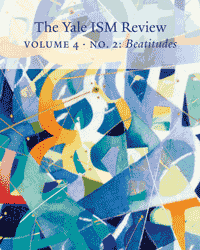Michelle Lewis
Blessed are the meek, for they will inherit the earth.
The little girl looked up at me and smiled. She was kneeling as she looked up at me with a slight smile. It was more question than statement. She asked, “Can we pray for Mimi?” I replied yes, and asked, “Who’s Mimi?”
She laughed in the way that only a four year old can laugh, as though I was silly because I didn’t remember; I had met Mimi just a few weeks earlier. Mimi was her family’s pet dog.
Her faith and “disposition of spirit” showed a willingness to trust—something that any adult might learn from.
As a part of the worship service every week, we invite people to the altar for prayer. It isn’t uncommon for children to come to the altar for prayer. However, it is rare for those who come to be this young, and even more so for someone to request prayer for a pet.
We joined hands and prayed for Mimi.
Part my prayer was that Mimi would continue to bring the family joy. When we finished the prayer, the little girl looked up at me and said, “Mimi died.” She was four and seeking answers. Without stating it, her question was, “Mimi is dead. How can she still bring us joy here on earth?”
We spoke in hushed tones. I said, “Because Mimi isn’t still here doesn’t mean that she doesn’t still bring joy. You had a lot of good times with her, didn’t you?” She nodded her head as she affirmed the statement. “Whenever you start to get sad, you can think about Mimi, and all the love and joy you shared with her and that she gave you and your mom, dad, and brother.”
The frowning look of determination that she had arrived at the altar with was replaced with a smile as she marched back down the aisle toward her seat.
“Blessed are the meek, for they will inherit the earth.” The little girl who came to ask for prayers for her dog was in her own way living this beatitude. Her faith and “disposition of spirit” showed a willingness to trust—something that any adult might learn from. Her meekness was not a sign of passivity but of receptivity.
The New Testament Greek lexicon defines Praus, the Greek word that is translated meek in English, as “the disposition of the spirit when we accept God’s dealings toward us without disputing or resisting.[1] Colloquially, the word “meek” has been understood as a description of someone who is mild or passive in general; one who stands in the background. But this is a very inadequate way of understanding what meekness means in the Bible. The Old Testament uses the word meek not to describe a personality trait of passivity but to signify those who are poor and afflicted. Psalm 37:11 promises the reversal of their fortunes: “The meek shall inherit the land, and delight in abundant prosperity.” Here, the Hebrew word translated as meek is anav. It has historically meant, “poor, humble . . .” but also “someone who acknowledges their need.”[2]
Nature exhibits meekness in a way that humans rarely do. Plants turn toward the sun, and are dependent on the rain. Domesticated animals continually adapt, showing love for their owners, even when the owners have been unloving toward them.
In the Gospel of Matthew, the Beatitudes echo the words of Psalm 37, promising a rich inheritance to those who are poor and afflicted: “Blessed are the meek, for they will inherit the earth” (Matthew 4:5, NRSV). So, what does “Blessed are the meek” actually mean? In light of the biblical background, I have chosen to define it as having faith that God will address the injustices of the world through divine power combined with the “disposition of the spirit when we accept God’s dealings toward us without resisting.”
How can those of us who are no longer children embrace, cultivate, and live the blessing of this kind of meekness? Perhaps we can take a lesson from the natural world.
Nature exhibits meekness in a way that humans rarely do. Plants turn toward the sun, and are dependent on the rain. Domesticated animals continually adapt, showing love for their owners, even when the owners have been unloving toward them. Dogs are one of the best examples of what it is to be meek. The dog, partially because it thinks the owner is never going to return when he or she leaves, showers the owner with love, and is often ready to respond to its owner with love. Wild animals are equally, if not more adaptable, than those animals that are domesticated. The continued sprawl of our cities causes animals to seek shelter outside of their natural habitats. Yet they continually adapt and acquiesce. Yes, there are the stories of animals that respond by attack, but this is rare considering the manner in which the natural habitat of animals has been continually encroached upon by humans.
By studying the natural world and becoming aware of our place in it, we also become aware of the many ecosystems we are part of on a daily basis. In Worldly Wonder, Mary Evelyn Tucker writes,
The grounding of our human aspirations within the creativity of Earth processes and within the limits of the ecosystems may give some appropriate measure to the expansive tendencies of the enlightenment mentality. As we recognize more fully that humans are a subsystem of the Earth we may have the basis for establishing equitable and sustainable economic, social, and political systems.[3]
When we view our homes, communities and neighborhoods as mini-ecosystems, we are able to begin establishing more equitable systems. These equitable systems are not possible however without a serious contemplation of what it means to live in a way that affirms the life of all of those living and breathing creatures with which we inhabit the world. The meek do not seek to dominate creation, but to live equitably within it.
Whether we view our role as partners in creation, or as caretakers of creation, we have a responsibility to be good stewards of all that is entrusted to us, in “righteousness, fairness, and justice.”[4] This commitment raises practical questions whose answers will vary depending on the congregation. For example, is it appropriate to incorporate pets and other animals into worship, and if so how? If we regard plants as living, breathing entities, does this change how we worship, and should it? What practices can we use to help deepen our understandings of creation and our role of caring for it?
I’ve learned from my pastoral experiences that exploration in worship—through services that welcome all living entities, and by embracing the questions of children and adults alike—can be a starting point for deepening our understandings of creation and our role in caring for it.
A couple of instances can serve as illustrations. For example, one of the best ways that I have found to incorporate pets and animals into worship is through services where animals are blessed. Although these types of services have been staples in some rural communities for decades, they are showing up more and more in other types of church settings.
The meek do not seek to dominate creation, but to live equitably within it.
The services have been transformative. One participant talked about having never before thought about animals being deserving of the love of God. Another woman who brought one of her dogs for prayer said that after the prayer the dog that had been in poor health was healed. A woman in her late eighties talked about how much she appreciated the chance to pet the animals. Though I can’t say what specific impacts this had on her, aside from an improvement in her mood after every service, pet therapy has been shown to have a number of benefits, including lowering blood pressure, diminishing physical pain, lifting spirits and lessening depression, and increasing self-confidence.[5]

© Olha Afanasieva | Dreamstime.com
Another example: as part of the ministries of the United Methodist Church where I currently serve, we grow food for families in the community through what we call the Peace Garden Project. As a part of the project, we have a worship service in which we pray for the garden and bless the seeds that we plant. We also include prayer as a regular part of both the planting and the harvest season, and there are Bible studies and joint learning sessions about the role of faith in food and gardening. This challenges us to think more deeply about our connectedness to the earth and how our spiritual practices can be shaped by the natural world.
We have seen a steady increase in the number of people that come to our harvest days and our joint learning sessions. The learning sessions focus on the interconnectedness of justice issues, and they take an in-depth look at connections between the natural world, food, faith, and spirituality. People who come to our harvest days are surprised that they can take home produce free of charge, and most have had a desire to connect beyond the harvest day. Those who have participated in caring for the space prior to and beyond the harvest days—through planting, weeding, and caring for the garden—have talked about how calming the process is, how much more connected they feel to the earth. Working in the garden has given them the opportunity to connect to the Creator in ways beyond their experience of the traditional worship service. They have come away blessed.
Caring for living things that are not human have caused all of the participants to think more deeply about what it means to be connected with the natural world. These processes have allowed us to begin to embrace and live into meekness in the way of plants and animals.
A little girl asked us for prayer for her dog that day. By this simple action, she gave an example of how we can begin to view all of creation and the natural world as worthy of the love of God. When we embrace the possibility that “the meek” might include the natural world, we are able to begin to envision what it means to be partners and caretakers of creation—blessed with the inheritance of the earth.
 Michelle Lewis is the pastor of New Rochelle United Methodist Church and is passionate about the intersection of religion and the environment. She is an award winning filmmaker and hosts a radio show that examines connecting our spirituality with daily life. Michelle is the first woman of color to hold joint Master’s degrees in Religion and the Environment from Yale. You can learn more about Michelle’s work at MichelleEstelleLewis.com
Michelle Lewis is the pastor of New Rochelle United Methodist Church and is passionate about the intersection of religion and the environment. She is an award winning filmmaker and hosts a radio show that examines connecting our spirituality with daily life. Michelle is the first woman of color to hold joint Master’s degrees in Religion and the Environment from Yale. You can learn more about Michelle’s work at MichelleEstelleLewis.com
[1] “Praus: The New Testament Greek Lexicon. Strong’s Number 4239,” https://www.biblestudytools.com/lexicons/greek/nas/praus.html (accessed August 31, 2018).
[2] http://www.biblicalhebrew.com/nt/beatitudes.htm (accessed August 31, 2018).
[3] Mary Evelyn Tucker Tucker, Worldly Wonder (Berkeley, CA: Open Court Publishing, 2003), 65.
[4] https://www.learningtogive.org/resources/jewish-philanthropy-concept-tzedakah (accessed February 25, 2018).
[5] http://www.pawsforpeople.org/who-we-are/benefits-of-pet-therapy/ (accessed September 11, 2018).
—
This material is licensed under an Attribution-NonCommercial 4.0 International License.
Recommended Citation: Lewis, Michelle (2018) “The Meek Will Inherit the Earth,” The Yale ISM Review: Vol. 4: No. 2, Article 7. Available at https://ismreview.yale.edu
